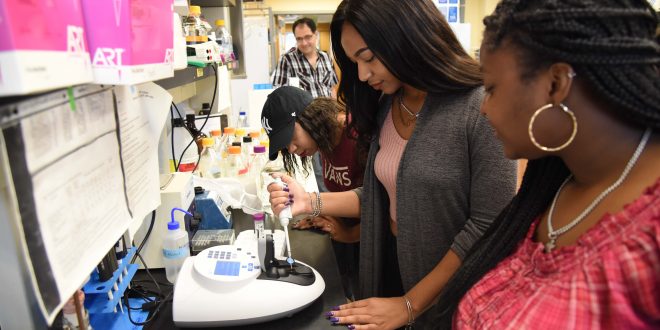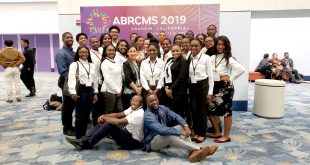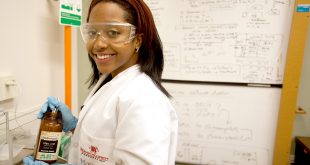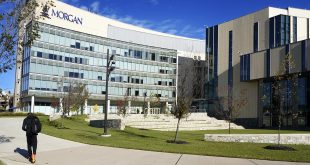Funding Will Support Six Health-Related, Community-Based Participatory Research Projects and Six Faculty Pilot Research Projects
Morgan State University’s ASCEND Center for Biomedical Research has awarded a combined $420,000 in grants to support 12 research projects. The awards include a total of $300,000 in second round grants ($50,000 each) to six university faculty members for pilot research, and a total of $120,000 in first round grants ($20,000 each) to six teams consisting of MSU faculty, affiliates and community stakeholders, for health-related Community-Based Participatory Research (CBPR). The grants, which are awarded annually pending a review process, are made available to tenured or tenure-track Morgan faculty members conducting research with a focus on health. Farin Kamangar, M.D., Ph.D., department chair and professor for Public Health Analysis in the School of Community Health and Policy, serves as the ASCEND principal investigator.
“It is our hope that the award of these grants not only enhances and strengthens Morgan’s relationship with the Baltimore City community but that the research being conducted leads to real and lasting solutions,” said Dr. Kamangar. “Additionally, we want the top-notch faculty that we have here at Morgan to become more competitive for external funding from the National Institutes of Health and ultimately move the University from an R3 to a higher R2 Carnegie Classification.”
The Morgan schools benefiting from this year’s ASCEND grant awards include the School of Community Health and Policy (SCHP); the School of Education and Urban Studies (SEUS); the School of Computer, Mathematical and Natural Sciences (SCMNS); the School of Engineering (SOE); and the School of Social Work (SSW).
The six pilot project grantees along with the titles of their projects are:
- Mingchao Cai, Ph.D. (SCMNS), Numerical Simulation of Brain Edema Using Poroelastic Models
- Minli Liao, Ph.D. (SSW), Trauma Exposure and Alcohol Use Disorder Among African American Emerging Adults
- Farzad Moazzami, D.Eng. (SOE), Localization of Medical Devices Based on Bluetooth Low Energy
- Md Rahman, Ph.D. (SCMNS), Developing a Retrieval-based Diagnostic Aid for Automated Melanoma Recognition
- Mathumathi Rajavel, Ph.D. (SCMNS), Deciphering Phage Resistance Mechanisms for Intelligent Design of Phage Therapy
- Robin Spaid, Ed.D. (SEUS), Food Insecurity and Student Success at Maryland Community Colleges
Over the next two years, ASCEND will offer one to two more rounds of pilot project awards of up to $50,000 each for faculty to jump-start or revitalize their health-related research. ASCEND received 23 applications for pilot research grants in 2016. Of these, six were submitted to NIH for further review and approval.
The six CBPR Team grantees and their projects include:
- Jummai Apata, MPH (SCHP) and Erica Goldman (Monument East Resident Services), Improving Smoking Cessation in Public Housing Community in Baltimore City: Engaging Former Smokers as Peer Mentors
- Sabriya Dennis, Dr.P.H. (SCHP) and Nicole Hanson (Out For Justice), Re-entry Health Needs Assessment Project
- Minli Liao, Ph.D. (SSW) and Lisa Bleich (Alliance for Community Teachers and Schools), Evaluation of a Community-based Literacy Project
- Halaevalu Vakalahi, Ph.D. (SSW) and Alice Delaney, Ph.D. (Pathways Institute for Crisis Intervention and Education), Development and Translation of Medical Technologies to Reduce Health Disparities
- Fernando Wagner, Sc.D. (SCHP) and Raynard Baylor (Midtown-Edmondson), A New Day for Midtown-Edmondson with Community-based Participatory Research
- Lurline Whittaker, Ph.D. (SEUS), Patricia Mulready, Ph.D. (SEUS) and Olutunde Clarke (St. Vincent de Paul of Baltimore Head Start), Assessment of Nutrition Outcomes
Over the next two years, ASCEND will offer two more rounds of small, health-related CBPR awards of up to $20,000 each. In 2016, ASCEND received 15 applications for the CBPR grants. Of these, six were submitted to NIH for further review and approval.
“The ASCEND program offers our students an opportunity to take their ideas and test them through the lens of laboratory research,” said Dr. Victor McCrary, vice president for Research & Economic Development. “The program also increases the interdisciplinary research prowess of our extremely talented faculty here at Morgan State.”
Proposals submitted to ASCEND are reviewed per NIH-defined criteria by researchers outside of Morgan State University.
The ASCEND Center for Biomedical Research was created through a $23.3-million, five-year award (2014–2019) from the National Institutes of Health. ASCEND (A Student-Centered, Entrepreneurship Development training model) aims to strengthen Morgan’s biomedical and research infrastructure by training undergraduate students to become outstanding biomedical researchers and providing faculty with support to develop or revitalize their own health research programs.
To learn more about the ASCEND CBPR Grants’ upcoming second round, visit CBPR Small Grants online. Or for more information about the ASCEND Pilot Research Grants’ upcoming third round, visit Research Pilot Projects online.
Morgan State University, founded in 1867, is a Carnegie-classified Doctoral Research Institution offering more than 70 academic programs leading to bachelor’s degrees as well as programs at the master’s and doctoral levels. As Maryland’s premier public urban research university, Morgan serves a multiethnic and multiracial student body and seeks to ensure that the doors of higher education are opened as wide as possible to as many as possible. More information about the university is available at www.morgan.edu.
# # #
MEDIA CONTACT(S):
Clinton R. Coleman or Larry Jones
(443) 885-3022
 Morgan State University Newsroom Morgan State University
Morgan State University Newsroom Morgan State University





